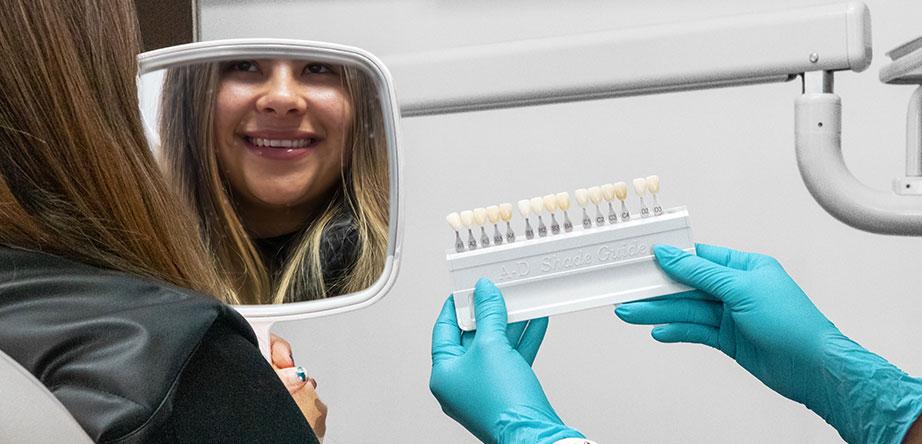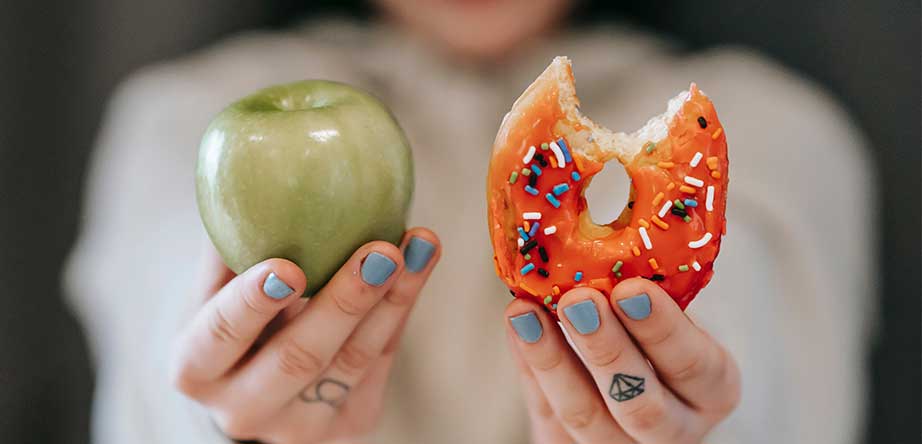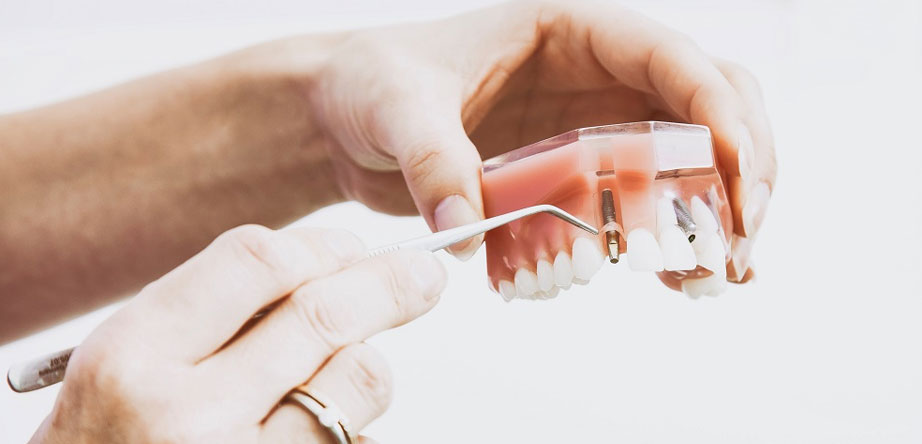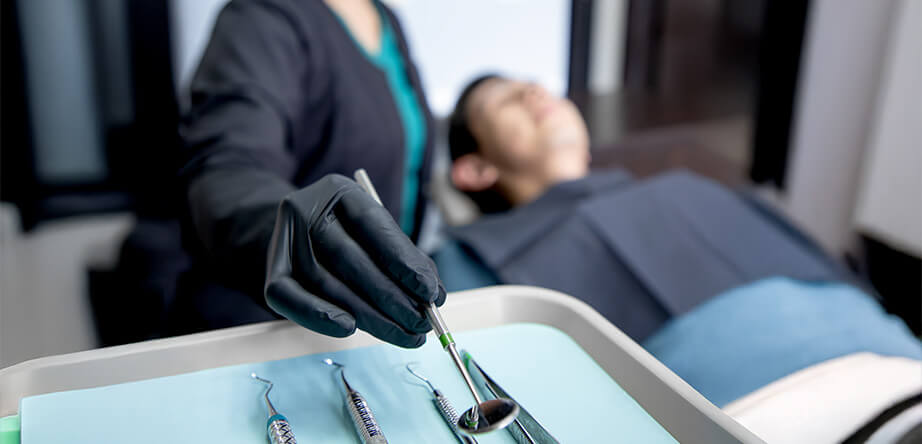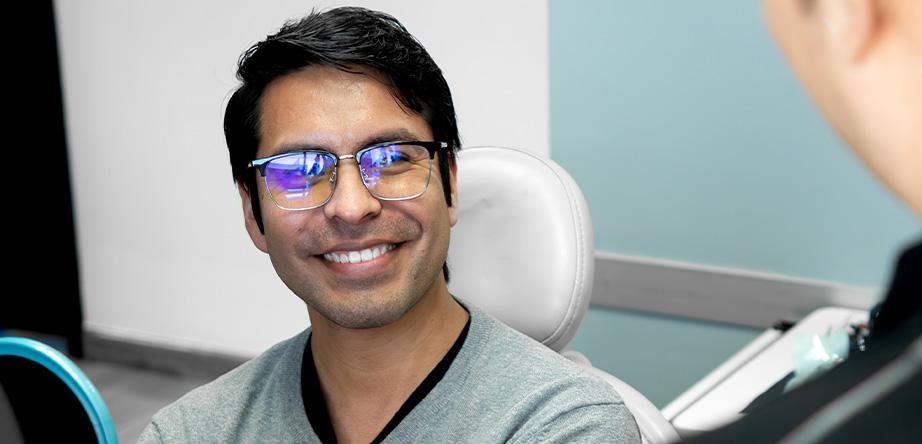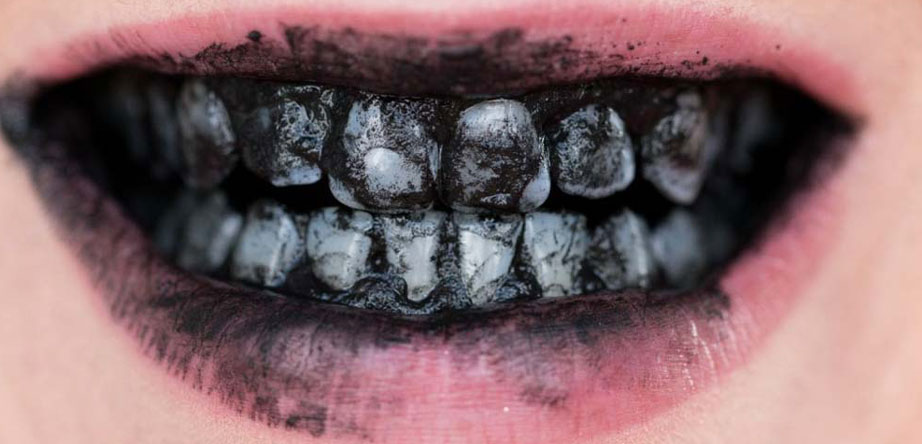
Does activated charcoal teeth whitening works?

Social Media posts claim that activated charcoal is a natural and safe alternative to whitening toothpaste.
Until recently, we only associate the word charcoal with poison treatments or barbeques. We were really surprised when photos of people featuring what looked like tar smeared all over their smiles started popping out on social networks.
But before trying to find a link between charcoal and teeth, let’s see why charcoal use has been long approved in the medical industry:
Activated charcoal is always the first response to poisoning and drug ovedoses at the ER. Its high latching ability with unwanted substances make it the preferred choice. But it’s latching ability doesn’t stop there. It has nano-sized pores that can attract and bind with almost any other substances, like toxins, bacteria and even dirt!
The fact that it’s able to bind is great, but what could happen if it binds too easily? Let’s say it binds with nutrients and removes beneficial substances too, it could be rendering them unavailable to the body! When there is an excessive amount of activated charcoal on food and drinks, the nutritional value drops.
For this reason, many doctors are questioning the benefits of adding activated charcoal on your daily diet. Now, what actually happens when you don’t “detox” with charcoal? When you are only using it superficially, like brushing your teeth? Here is what we know so far:
What is activated charcoal?
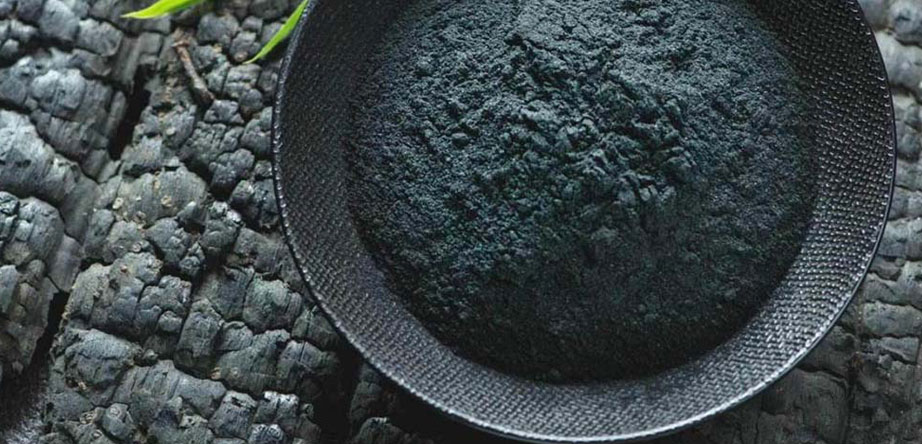
First, let’s see what regular charcoal actually is: burned wood! It needs to heat at a very high temperature. After that, the carbon-rich chunk turns into an extra-porous carbon piece.
The next step is to inject oxygen and other gases. That way, it can attract other substances because it transforms into a “magnet”.
And that’s how it has turned from a piece of burned pellets into a wonderfully good filter of toxic chemicals. In other words, it results in activated charcoal.
It is said that it has so many pores that a single teaspoonful of activated carbon has the same surface area as a football field!
Suggestions to use Activated charcoal as a teeth whitener have increased. And since it binds easily with almost anything, it’s also the perfect candidate to remove tooth-staining agents!
Tooth whitening at home works only on the surface
There are a lot of over-the-counter whitening products. How do they achieve tooth whitening?- Removing surface stains with abrasives or peroxides.
- Preventing staining using chemicals that act as a barrier.
- Removing food debris on already whitened teeth.
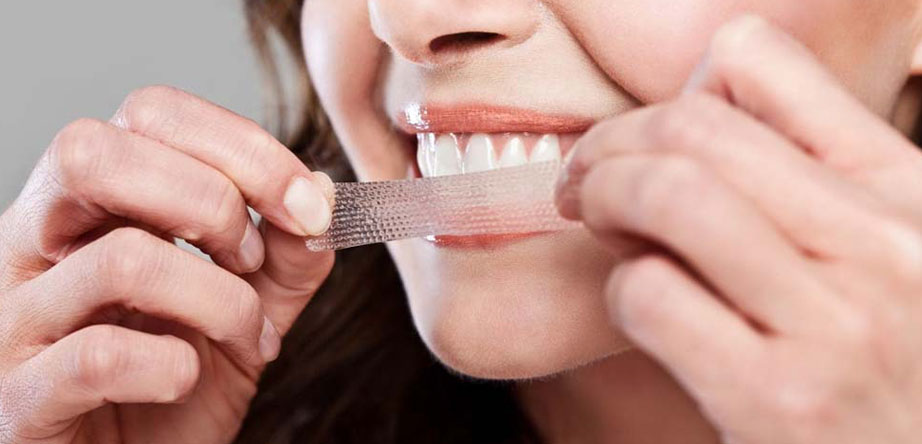
Among ALL the whitening methods, from toothpaste, whitening treatments, to bleaching strips, there are only 2 different ways to do it:
- Bleaching – It’s basically changing the coloration on your teeth. Bleaches use an active ingredient in small concentrations. You could find carbamide peroxide or hydrogen peroxide as ingredients. They’re there to oxidize the stains found on the surface, pores, and cracks of your teeth.
- Non-bleaching – If they don’t bleach, they’re not after the tooth’s coloration. What does this mean? Well, since they need to remove surface stains, they do a mild abrasion on your teeth. They can do this by physical or chemical action. Non-bleaching whitening toothpaste containing chemicals or polishing agents can help on stain removal. It’s better when it doesn’t affect the enamel.
By the way, the enamel is the outer layer of your teeth. Is the color that you see in them, and the glossy surface that you brush. Whitening products and methods shouldn’t damage the enamel. If it does, you could end up with a severe case of dental sensitivity. – Although is normal to feel some sensitivity right after a dental whitening treatment, it should go away in the next couple of hours!
Do you think that charcoal’s abrasive characteristics will outweigh its benefits?
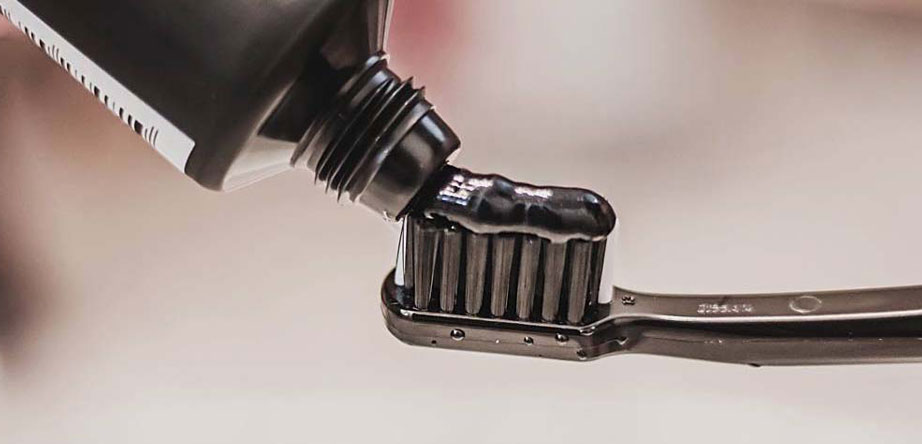
Activated Charcoal has no chemical bleachants. But it uses abrasion to whiten your teeth. Charcoal toothpaste in the form of paste and gel is less abrasive than the powder presentation, though. And because of that, powders should be used with caution.
A common saying in dentistry is “The ideal toothpaste provides the greatest cleaning action on tooth surfaces with the lowest abrasion rate.” that’s what Phillips’ Science of Dental Materials book states. And we think that it’s so related to what we are talking, that it could easily replace our title!
Since there are too many claims on social media about the many benefits and virtues of Activated Charcoal, we are really curious about the actual effect of charcoal on teeth. We are prepared for both positive and potentially harmful effects of activated charcoal on teeth. Are you?
Do acrylic teeth and activated charcoal mix?
Scientists at the LECOM School of Dental Medicine had the same question. They wanted to know if Activated Charcoal Powder is safe to use as a teeth whitening remedy, or if it could be more abrasive than toothpaste. To answer, they did a lot of tests with acrylic resin teeth, which are totally artificial by the way. It would be really difficult to find people willing to stain their teeth for testing purposes, right?They needed to test different substances commonly used when brushing teeth. So, they brushed with activated charcoal, water, and whitening toothpaste. They used different toothbrushes on every test, of course. In the end, they admit doing over 2,000 strokes by hand using soft-bristle toothbrushes!!
After their workout, they concluded that they were tired and that activated charcoal was more abrasive than whitening toothpaste. But we feel that this would only apply to those using artificial teeth since the test was done on acrylic teeth.
One thing’s for sure, the black charcoal powder can reach margins or cracks of old dentitions. Opting for a whiter charcoal powder might be the best solution.
We are still waiting for an extensive test done in real teeth. For us, that would be the turning point!.
Does activated charcoal toothpaste whiten teeth?
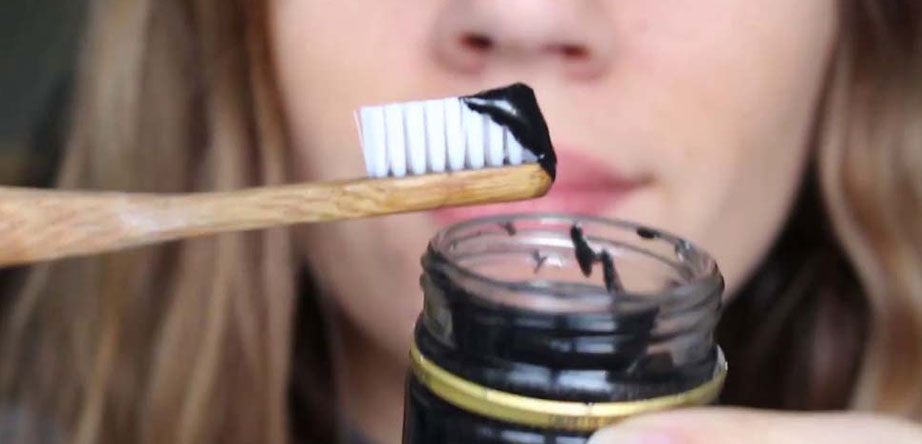
Well, charcoal toothpaste will be in contact with your teeth only for a couple of minutes a day. Some say that it won’t do much for your smile because there isn’t enough time for a whitening effect. You can use it to remove bacteria causing bad breath and turn it into an antibacterial, there’s no doubt of that.
Cosmetic dentist Gregg Lituchy recently told InStyle that Charcoal Toothpaste “…can successfully pull toxins and tannins (teeth-staining culprits in coffee, tea, and wine) and remove them from teeth leaving a whiter, brighter smile.” As you can see, he mentions two different steps on charcoal toothpaste usage: stain removal and teeth whitening.
The usual superficial stains that you’ll find in teeth come from your lifestyle: drinking coffee and red wine, smoking tobacco and having a strong like for dark colored drinks or food.
These stains are stuck on the enamel, which is the outer layer of your teeth. Everything that lives on this layer can be removed when you brush your teeth with toothpaste or with whitening treatments.
As you probably already know, the enamel is the glossy surface that you brush and what usually gives its color to your teeth. But the color could also be coming from underneath. Discoloration is also a consequence of tooth trauma. Maybe you’re taking meds that are staining your teeth. A darker or grayer tone to your tooth also comes from a worn out enamel layer.
Either way, deeper stains have multiple causes. And even if you mix activated charcoal with your toothpaste or heavily brush your teeth with it, it won’t make a difference if the stains are deep. In this case, is better to get an in-office whitening.
There’s a guide to measure abrasiveness of dental products. The FDA only recommends products below a score of 200. Some activated charcoal products score less than 100 and most whitening toothpaste can score between 100 to 200. On top of everything, charcoal shouldn’t replace your regular toothpaste. Or even less the next dental appointment.
Our advice with charcoal teeth whitening toothpaste:
- Before you add charcoal into your daily routine, use a toothbrush with charcoal-infused bristles or get a charcoal-based paste. Always choose paste and gel over the powder presentation!
- There are certain formulas that you should avoid, like the ones containing baking soda. It too acts as an abrasive and can wear your teeth more easily. Some formulas already have fluoride in it, those will do a better job fighting dental decay.
- Dentists always recommend using a soft bristle brush, to avoid wearing down the enamel layer. When you are brushing at home, don’t apply too much force either. If possible, opt to apply it gently on the teeth instead of brushing it on. That way, you will also be protecting the enamel. Avoid using it on a daily basis. Is better to use it as a supplement to your regular toothpaste as well. If you don’t see any changes in color, remember that charcoal toothpaste works superficially. If your teeth are naturally dark or yellow, you may need an in-office whitening session to get better results. There are many dentists that advise erring on the side of caution. If the activated charcoal bottle isn’t labeled, you should avoid it by all means. You won’t be able to know how pure is the charcoal bottled on those products.
- We have seen a lot of DIY posts online, and we would never suggest trying that. Activated charcoal is not the same as regular charcoal. Even major brands are aware that not all types of activated charcoal are the same.
- Unlike many other tissues in your body, teeth don’t regrow or replenish. If a substance or the way that you brush your teeth could be causing damage to your teeth, you should try to walk out of it. Activated charcoal removes stains because it’s porous, but it could also be troublesome since it could be too abrasive.
Other uses of Activated Charcoal
- Skin Care. It’s no surprise that skin care is one of its uses. Given its popularity started with face masks! It gives a deep cleaning, removes dirt, dust, and chemicals from the surface of the skin.
- Deodorant. One of the most popular uses. Since it easily absorbs smells, is an ideal deodorant for underarms and objects, like shoes and refrigerators.
- For skin infections. Its antibacterial effects are exploited on skin treatments worldwide. The effect also works on wounds.
- Diarrhea. Largely used as an absorbent in overdoses and poisonings, it works trapping the toxins and helping to eliminate them without additional harm to your body.
- Water filtration. The Tapp Water initiative backs it up! They are betting on a Smart Tap Water Filter containing, you guessed it!, activated charcoal as one of its components.
- Kidney health. A study found that it may help improve kidney function.
